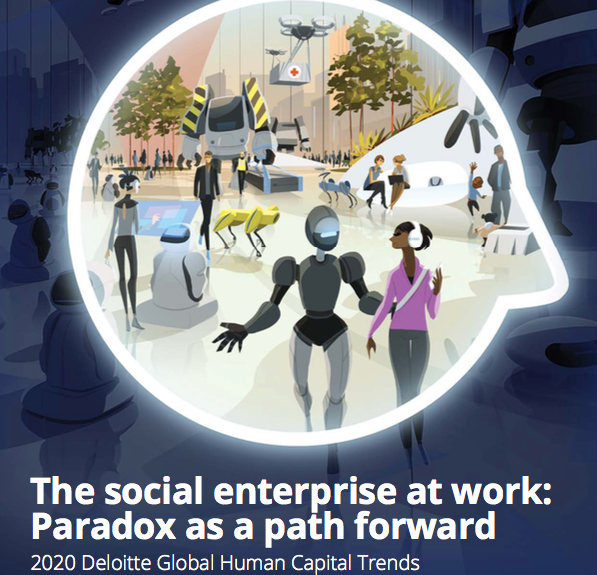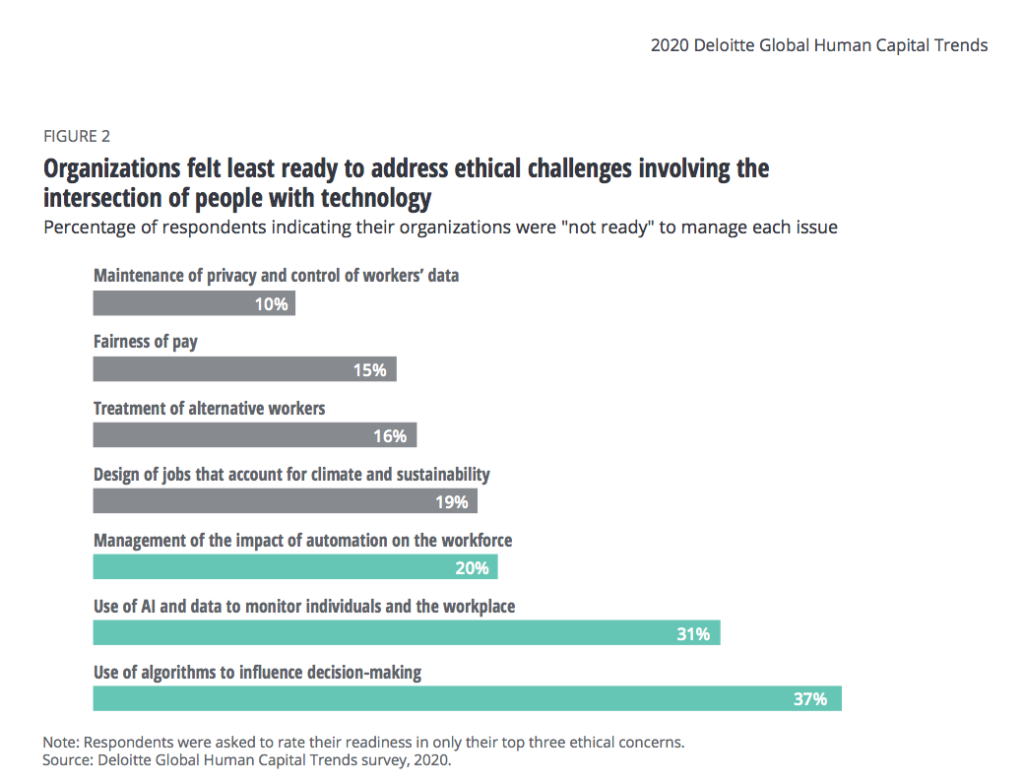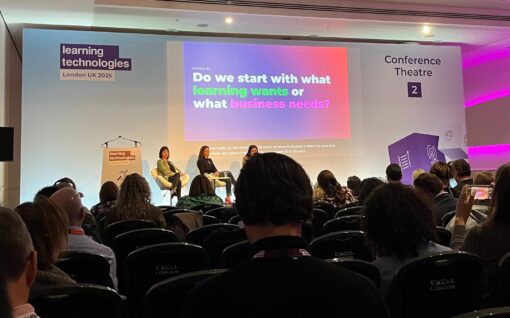Research Digested – 2020 Deloitte Global Human Capital Trends

A snapshot of useful research for L&D and workplace professionals.
About the research
Deloitte ran its first Global Human Capital Trends survey in 2011. In this latest iteration, 8,949 senior HR and business professionals from around the world were asked to provide their views on the latest human capital trends.
Standout stats
This year’s top trends are:
- Well-being
- Belonging
- Knowledge management
- Ethics and the future of work
- The evolving role of HR
- Reskilling
- Governing workforce strategies
- The postegenerational workforce
- Compensation
- Super teams and AI
For each trend, respondents were asked how ready their organisation was to adopt this trend. For all trends, around 50% of respondents said they were ready or very ready. Many organisations have a long way to go to prepare for the impact of these trends. The report provides a chapter of data and insight on each trend. Here we look at the stats that stood out for us.
When it comes to belonging, the research shows that workers who are valued for their contributions and who feel aligned with the organisation’s purpose and values feel the greatest sense of belonging versus those who feel connected and those who are treated fairly.
Organisational culture (43%), leadership behaviours (33%) and personal relationships (24%) are the factors that most affect an organisation’s ability to create a sense of belonging.
When it comes to well-being, organisations say that theor strategies have the biggest impact on: workforce experience (62%), reputation in the market (42%) and customer experience (40%).
Most strategies take a holistic view of well-being:
- 34 % of respondents say their well-being strategy focuses on the physical, mental, and financial health of our employees
- 21% say their well-being strategy is comprehensive and integrated into the way we design work and develop our workforce experience to provide purpose and meaning
- And 17% say they do not have a well-being strategy.
So how are organisations promoting well-being? In a variety of ways . . .
- Giving workers more autonomy in how they do their work – 45%
- Using technology to promote more connectivity and collaboration – 41%
- Increasing flexible and/or predictable scheduling – 39%
- Increasing remote work opportunities – 38%
- Introducing wellness behaviors in day-to-day work – 38%
The report asked questions around AI and team working as well as AI and ethics.
Asked What is the primary reason your organisation uses AI, 4% say to oversee workers, 12% say to replace workers, 60% say to assist workers and 24% say they don’t use AI.
And when it comes to ethics and the future of work, organisations are not ready to manage a number of issues involving the intersection with people and technology . . .

Knowledge management is one of the top trends this year. So what do we mean by the term? According to the respondents it is defined in the following ways:
- Sharing knowledge: Documenting and disseminating knowledge 55%
- Preserving knowledge: Maintaining knowledge for future access and use 44%
- Creating knowledge: Developing new services, solutions, products, or processes 43%
- Deriving value from knowledge: Tying knowledge to action 36%
And the barriers to better knowledge management include:
- Organizational silos 55%
- Lack of incentives 37%
- Lack of technology infrastructure 36%
- Lack of organizational mandate 35%
- Frequent shifting of which people are in what roles at what time 35%
- Compliance headwinds 13%
Asked about workforce strategies and the data they collect about work, respondents revealed that future focused activities were bottom of the priority list. Organisations mostly collect workforce data on . . .
- Headcount, hiring, and turnover 82%
- Salary costs 68%
- Workforce composition (e.g., on and off balance sheet workers) 53%
- Engagement 42%
- Workforce diversity 37%
- Leadership pipeline 35%
- Learning investments and progress 33%
- Critical roles 32%
- Talent mobility 30%
- Employer brand 24%
- New workforce initiatives 16%
- Status of reskilling 14%
Final word
It’s always interesting to see which trends are towards the top of Deloitte’s annual list of trends. Well-being, belonging, knowledge management and ethics. Who could have predicted the importance of these trends 12 months ago? There’s much to digest here and lots to think about for learning teams. How are you helping overcome the barriers to knowledge management?
Report reading time: 30 minutes
Media: PDF
Read the report here.

